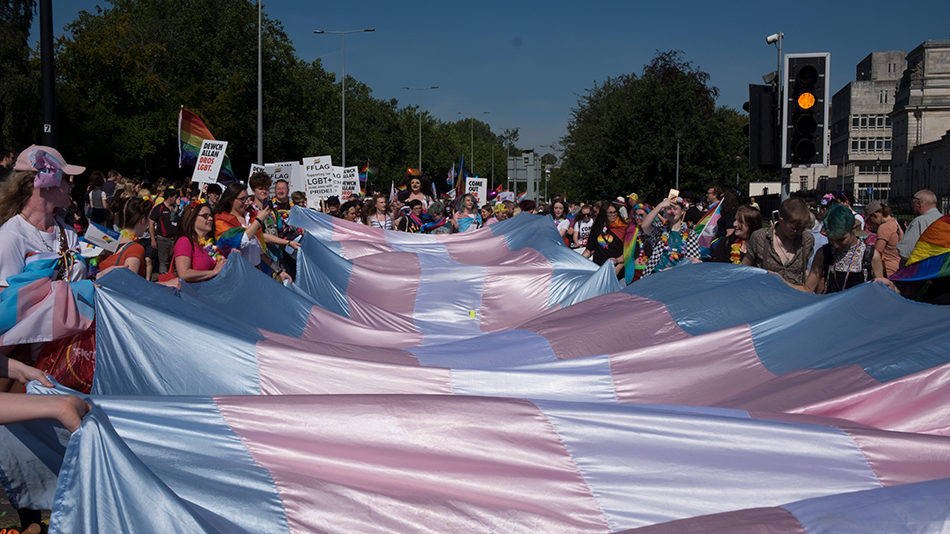Llandudno and Cardiff may be on opposite sides of Wales, but they both boast the largest transgender communities in the country. What is it like, transitioning when you’re over 40, and dealing with loneliness and isolation on the way? Members of these two communities tell their stories.
Gabriela, Charlie and Elizabeth are sitting in the same corner of the Union Café in Cardiff. Gabriela (52) is in the middle, fussing with her top and skirt. She has brown hair, pale skin, long nails that she checks from time to time, and speaks with a deep voice that has a soft tone when she explains her life. She also lived for 40 years as a biological man.
Next to her, Charlie (45) is chatting about losing weight and the side effects of testosterone. He has short hair, blue eyes and a dark blue t-shirt combined with long shorts. It is difficult to distinguish his female biological past. “Some days you just wake up very angry,” he says.
On the left is Elizabeth (50), and her biggest concern is her wife: “Now she’s married to a woman. But she’s not a lesbian.”
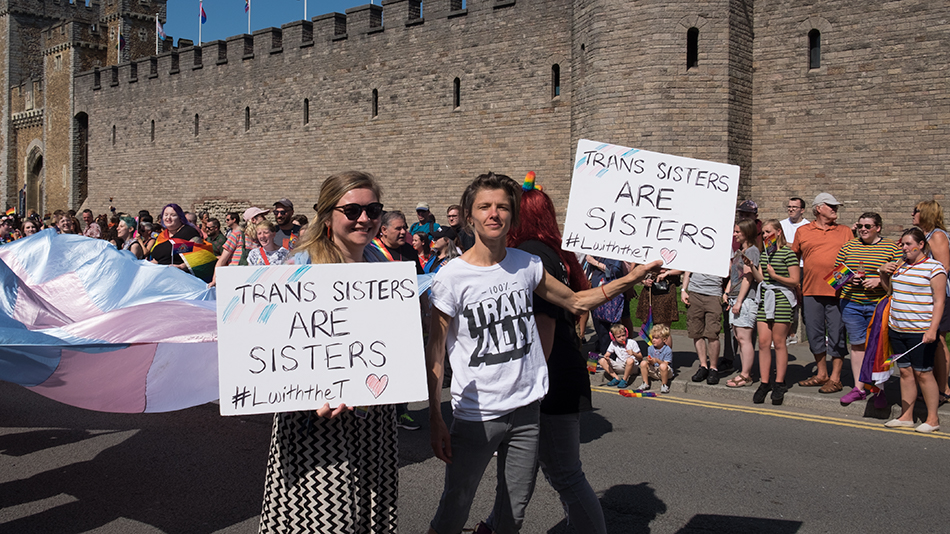
These three stories are not exceptional, and these are not the only topics. Each month, the Welsh transgender community fill a café in Cardiff and a bar in Llandudno in the monthly meetings of Trans Social Meet-Up (TSMU) and the UNIQUE Transgender Network, organizations supporting trans people across Wales.
These reunions, 309 km apart, are safe places to share everything: From exchanging size 12 high heels to the loneliness and isolation that their members experience every day. According to the Welsh Assembly, transgender people are one of the populations most vulnerable to loneliness, especially in later life.
What is it like to experience isolation and loneliness as a transgender person over 40? “It was literally like a champagne cork going off in my head,” says Gabriela.
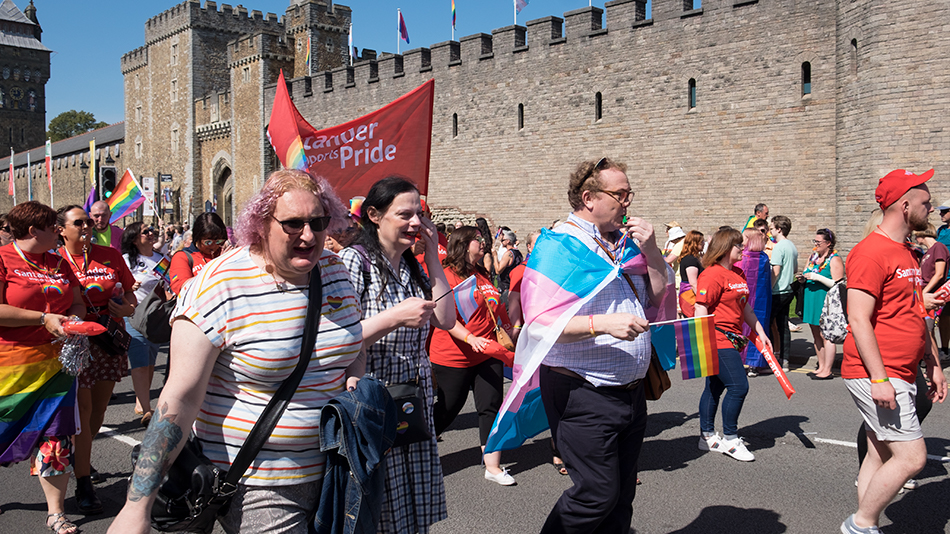
Building barriers since children
There are no precise numbers about this community in the UK. The latest figures of the UK government say there are between 200,000 to 500,000 transgender people in the nation; the size Newport and Cardiff combined.
A community whose members sometimes wait for many years to “sparkle” and present themselves in public. Some of them wait until their partners die to start again explains Dr Penny Miles, an expert from the School of Politics, Languages and International Studies of the University of Bath.
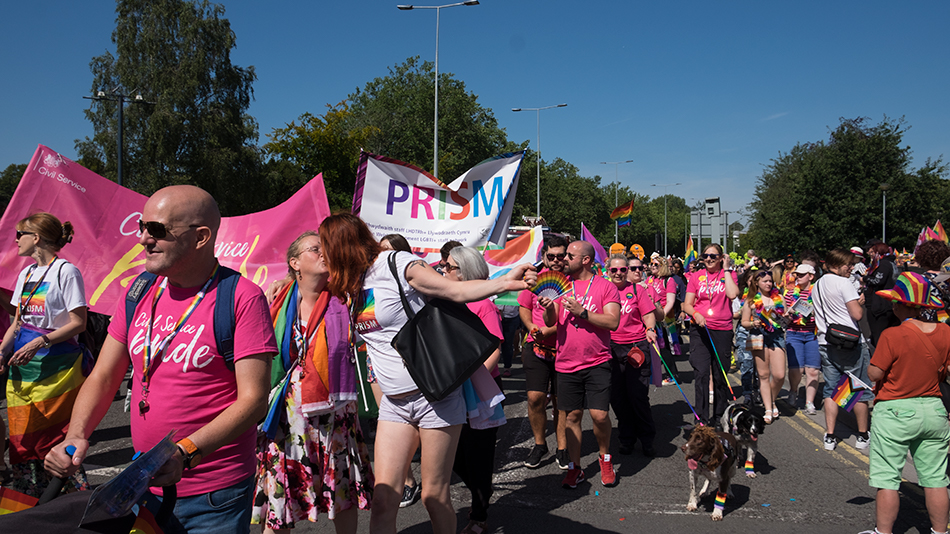
Participants at the Cardiff Pride Parade 2019. 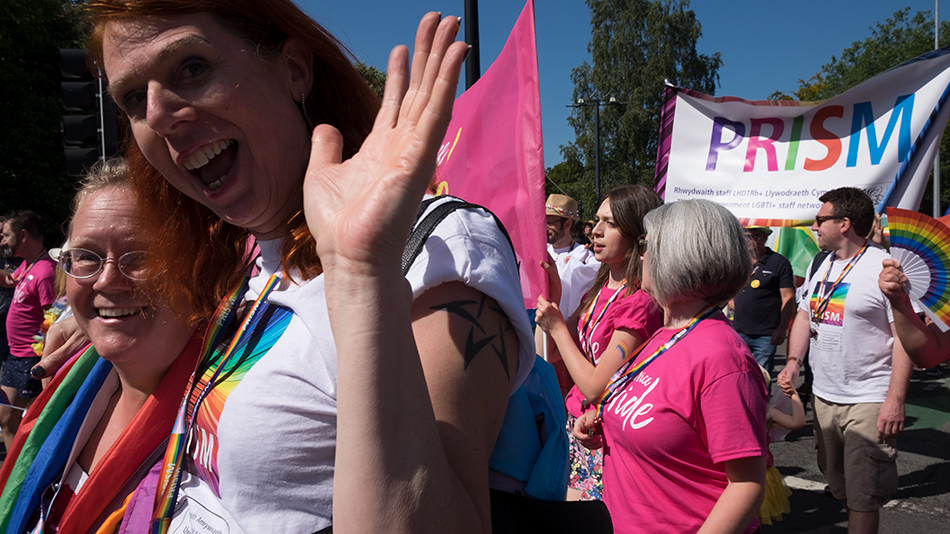
Photos: Francisco Rodriguez I.
Dr Miles, who has worked with transgender groups in Chile and the UK, explains that most of them haven’t found support in their most intimate circles since they were children. “If you’re living in a small community that can be harder in terms of social pressures.”
The case of Jenny-Anne Bishop (73) shows elements of this. At six years old, in 1952, she borrowed some of her mum’s clothes to wear one day to her all-boys’ school. Her decision caused an impact on her parents. “The psychologist said that it was just a child exploring identity. But my parents thought it was wicked,” she says.
The psychologist said that it was just a child exploring identity. But my parents thought it was wicked.”
Jenny-Anne Bishop
Years later and never having had the support of her parents, Jenny-Anne moved to London to study. She found lots of gender diversity around and maybe, an opportunity to explore what she might be able to become, but the advice she received was “get married, have a family, and it’ll all go away.” She did that, but the feeling never went away.
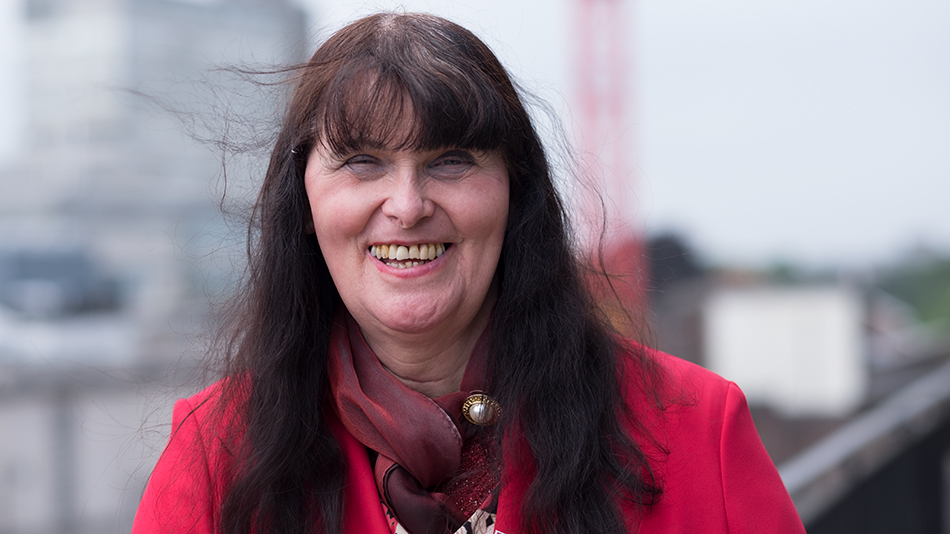
Gabriela had a different experience. She went to the local boys’ school, and her sister to the girls one. “I wasn’t a stupid kid or anything. But I was at the bottom of the class in everything. If I got second to bottom, it was like a major event in the family.”
I always thought that I might have been swapped in the hospital because I felt disassociated with something.”
Gabriela
However, her boys’ school was about to close, and her senior class moved to the girls’ school. Gabriela was 15 years old, and nobody was expecting a change. “In that first year, I was in the top five per cent of the class. It was with the same teachers. [It was the] same curriculum.” Gabriela couldn’t explain her new grades to anyone or even herself. Nobody also approached her. “I always thought that I might have been swapped in the hospital because I felt disassociated with something, but I didn’t know what it was.” She took more than 15 years to discover it.
Trains for change
“I would like to say something about isolation,” says Sophie (39), sitting at a table with four more people in the underground bar of a hotel in Llandudno. “Within this country gender stereotypes are very heavy, boys play with boys, and girls play with girls, men associated with men and women associate with women,” says Sophie, who refers to the situation where transgender people have to remain in silence for fear of discrimination and isolation.
Within this country gender stereotypes are very heavy, boys play with boys, and girls play with girls.”
Sophie
Sitting two tables away from Sophie is Thomas (40). He knows how it feels to remain silent about his passion: running. Sometimes, he doesn’t mention that he is transgender because people don’t allow him to participate in the gender category that he wants to. “It is funny, because [when I was young] I was told that I wasn’t allowed to compete at school or county level or anything. I wasn’t sufficiently female to compete as female. I said, ‘Fine; I’ll compete as a male.’” However, it seems that there is always someone with an excuse to leave him out. “It’s because of the [testosterone] hormones,” says Thomas looking nowhere, as if he was trying to find the answer in the tablecloth.
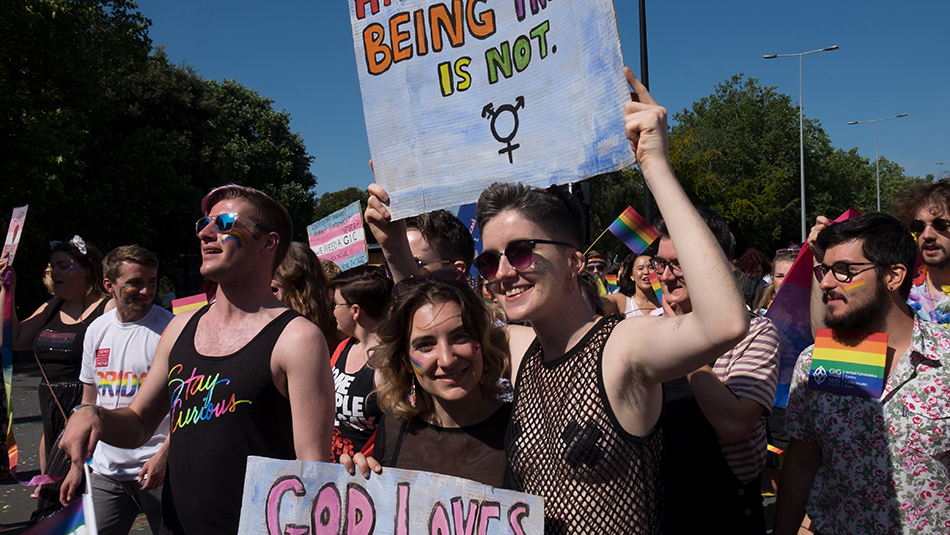
Participants at the Cardiff Pride Parade 2019. 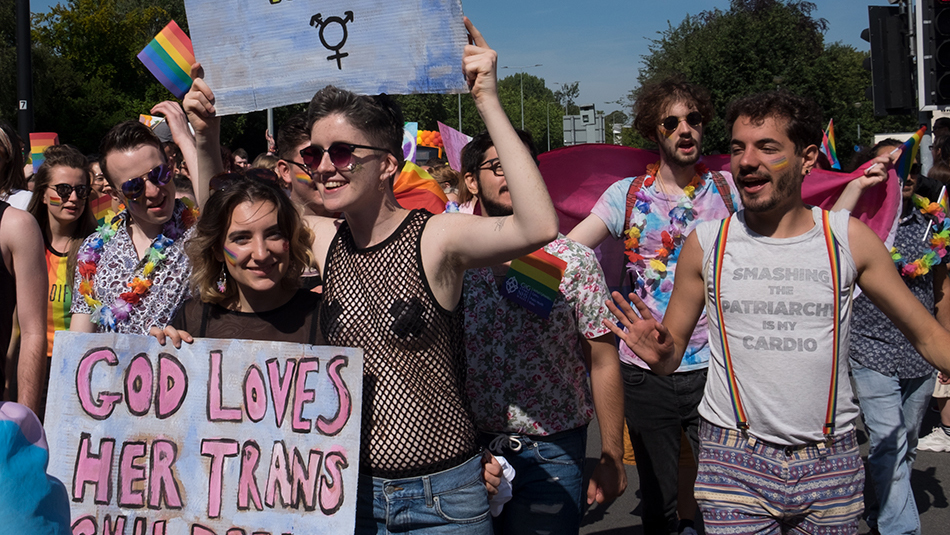
Photos: Francisco Rodriguez I.
A 2018 national survey by the Stonewall charity concerning the rights of LGBT+ people, revealed that 67% of transgender people had avoided being open about their gender identity for fear of an adverse reaction, and 41% experienced hate crimes in the last 12 months. Moreover, the BBC reported that hate crimes against the transgender community in the UK has risen by 81% compared to one year ago.
These situations have pushed transgender people to hide or prefer the privacy of their own homes. However, these safe spaces don’t last forever.
“As most trans people want to be seen, want to be part of the world just as themselves. But most are very afraid that they’ll be discriminated against, that they’ll maybe even be attacked. Somebody will report them, they’ll lose their job, they’ll lose that family and maybe even their home,” says Jenny-Anne Bishop, who coordinates TSMU and the UNIQUE network in Wales. For example, 25% of transgender people had experienced homelessness at some point in their lives.
Jenny-Anne almost experienced this after she received a question from her ex-wife: “Do you want to be buried as your male self or as Jenny-Anne?” In that time, she was legally male, had two kids, a successful career as a chemical salesperson, and in the privacy of her home, an affection with crossdressing, with the help of her ex. The answer was Jenny-Anne.
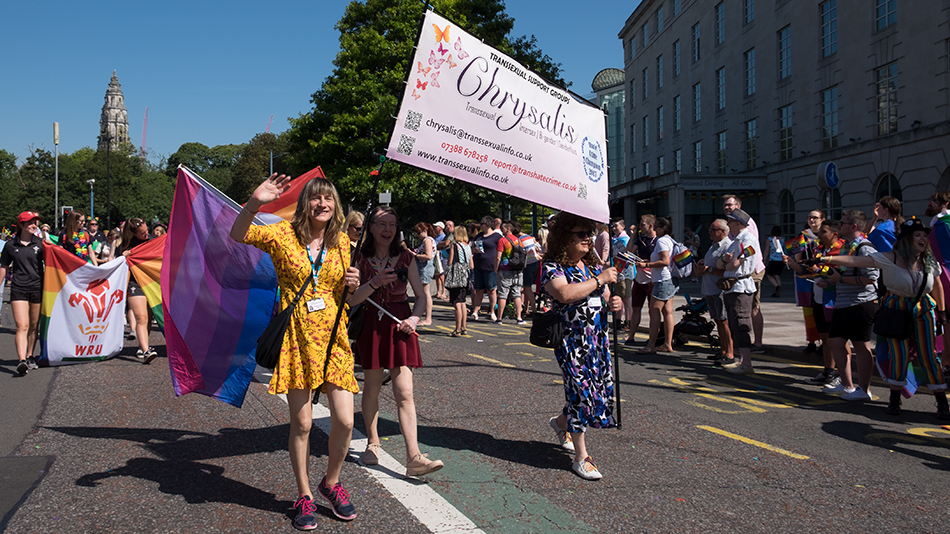
“I promised her that I wouldn’t change, I wouldn’t take hormones or have surgery or grow my hair out or anything like that, and in return, I had reserve time as Jenny-Anne.” This decision secured the family, but the marriage started to break down, leaving Jenny-Anne only for Jenny-Anne.
Back at Sophie’s sits Laura (81), a retired journalist, explaining that to avoid these situations and be themselves, transgender people may have different lives in different cities. “I originally lived in Bristol. We had a lot of traffic across the channel. People from Cardiff would come over to support groups in Bristol and vice versa,” says Laura remembering a lady who use to change her clothes in the bathroom of the train on her way to Bristol.
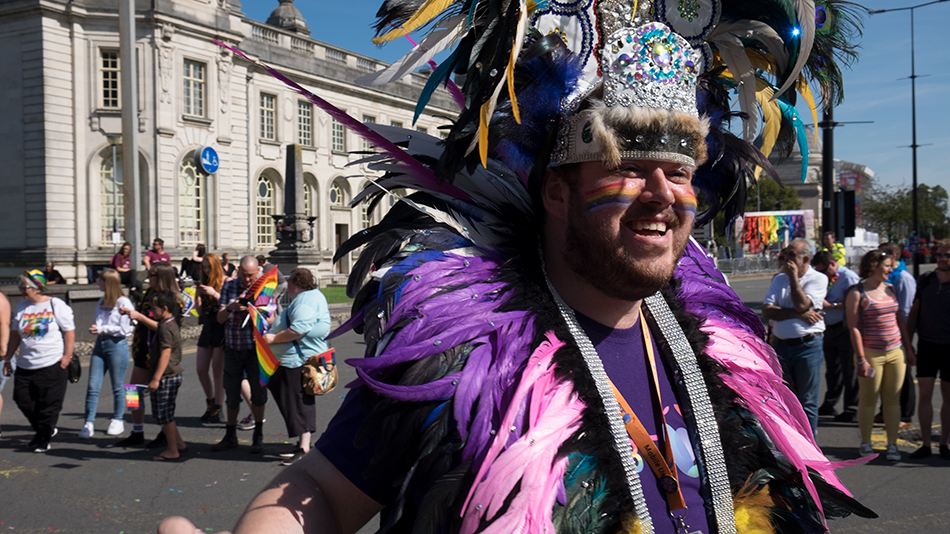
“We also have something we call the vampire effect,” says Jenny-Anne. “In the light evenings, we have fewer people coming to the group because they are concerned about being seen. But when the nights get darker, they can come out because they hope that nobody notices.”
In the light evenings, we have fewer people coming to the group because they are concerned about being seen.”
Jenny-Anne Bishop
Because of this, some members of the transgender community develop a strong self-protection instinct, leaving some scars in their behaviours. “Quite a lot of the times people feel they’ve been discriminated against, when actually they’ve not been,” says Jenny-Anne. This response is called internalised transphobia, and it happens when people are sure that if they come out, everybody will discriminate against them. “In reality, most people really won’t care, and I think that we operate largely on the basis that if you behave sensibly and with confidence, other people will treat them reasonably,” says Jenny-Anne.
Become part of something
Nowadays, the UK transgender community has access to information, public services, events with diverse groups and laws protecting their rights. Even so, after years of hiding, the task of coming out, asking for help, or integrating into the wider community, is still extremely difficult.
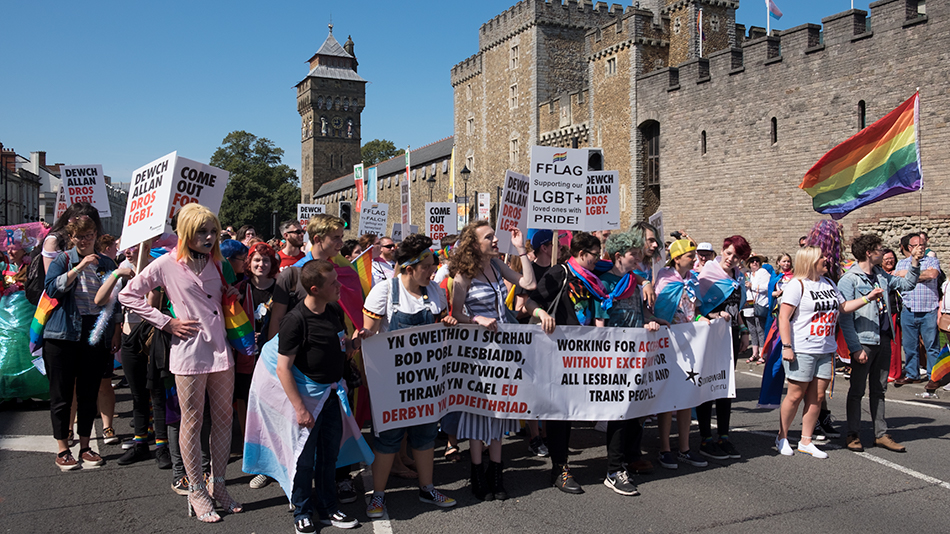
“[The biggest problem] is building confidence. It’s a lack of confidence [holding people back],” says Kathy, who is helping others like her to cope with the problems of transitioning, supported by professionals from a national charity. [You can help] mostly by talking, reassuring them that they’re not on their own. There are other people who’ve got similar problems. Perhaps there are other people who have had those problems and overcome them. It can be a long process of confidence-building.”
For Paul (41), sitting next to Thomas, it’s been difficult for him to integrate into social groups, even the LGBT+ ones. “I would actually say I’ve never really felt like part of any group in my life. I’ve always been on the fringes. Seriously, it’s taken me the last three or four years to be fully accepting of myself and be able to be myself in this community.”
[The biggest problem] is building confidence. It’s a lack of confidence.”
Kathy
The most annoying part, explains Paul, is answering questions. “You get challenged. Just the way they look [at] you. ‘What are you?’. You don’t want to explain that to people all the time.”
But it seems that every person filling the two rooms, in Cardiff and Llandudno has had a moment of breakthrough. A moment of freedom that cannot be spoiled by anyone. “I spent my entire life trying to fit in what society expects, and I’m not going to do it anymore,” says Martha, who at 38 years old, broke 20 years of silence with her family about being transgender.
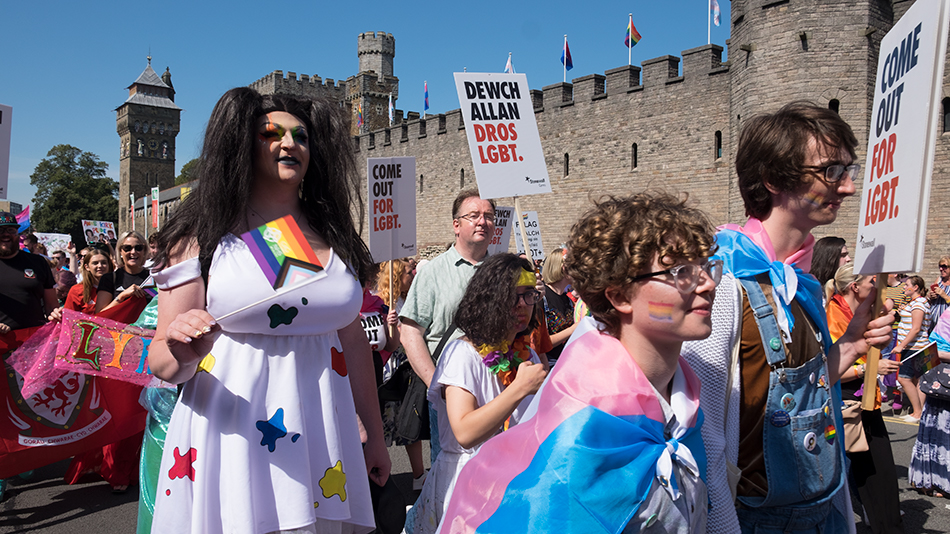
Martha told her parents, and against all the odds and her own belief, they accepted her the way she is. “There is nothing worse that can happen to you, than the consequences of not coming out,” says Martha.
Sometimes it takes even longer. Laura told her 96-year-old mother by showing her pictures of herself in dresses. “My mother liked the photographs, which meant we could go on talking about me,” says Laura.
Transmum
The average age for transgender reassignment surgery is 42. Jenny-Anne had her surgery when she was 65. She was divorced, her kids were grown up, her parents had died, and she no longer had anyone to take care of. “I never broke my promise,” she says.
Now, she has a life helping people in her position, and a new partner. “It’s the best relationship I’ve ever had, and I just wish I’d found Elen as a young person. She has children, and interestingly her kids, and her grandchildren accept me, and I’m called ‘Transmum’, which is lovely.”
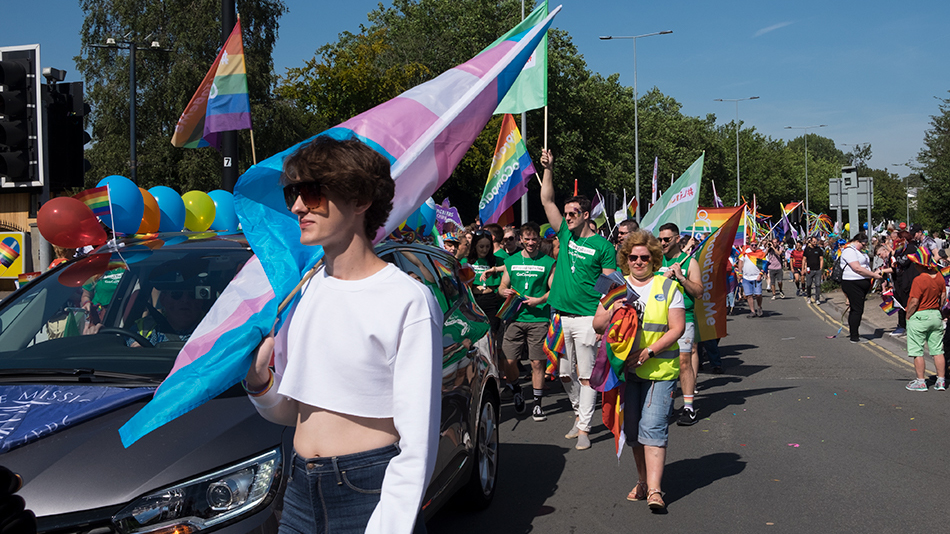
There are other members of UNIQUE that are in the middle of the process. Two years ago, Elizabeth, a civil servant working in Wales, started the process of her gender reassignment. She is not alone. Her wife is with her in the transitioning process.
“There were some intense discussions and some tears before bedtime,” says Elizabeth. “But again, I feel I’m very fortunate that I and my wife have come through this process and are still together. Many people lose everything”.
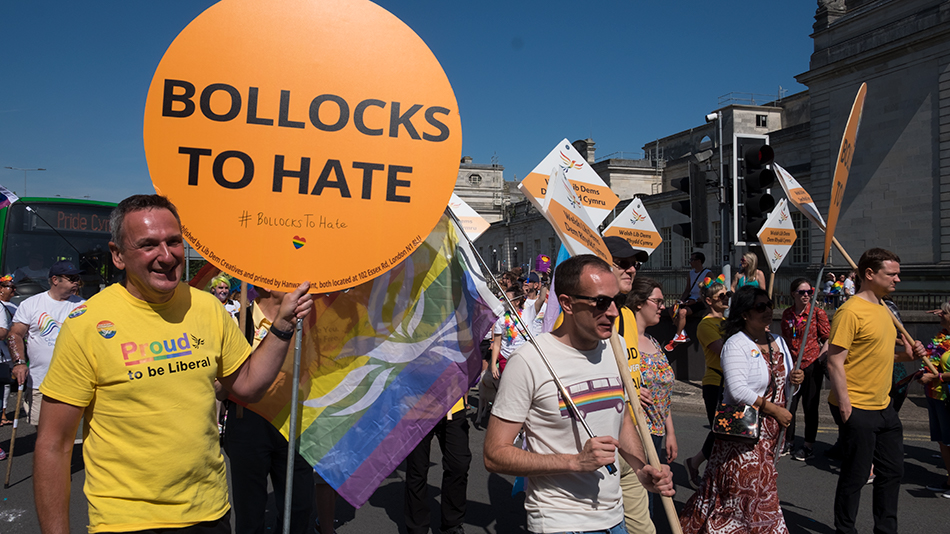
Transitioning, according to Gabriela, is a process that makes people even more isolated. Having company with you on the journey is essential. That is why she moved to a house where others were facing the same route. “You are literally like a snail without a shell. That’s how vulnerable you are. I literally had to peel everything away because I knew my life had been based on a complete falsehood.”
Now, at 52 years old, Gabriela has been taking time to understand herself, physically and emotionally. “I did the whole thing. I did my best to find hideous makeup. I went through good long hair. The enormously long nails. I had to try these things, and yes, you have to. You have to do it because you’re trying to get something from your experience, your womanhood,” Gabriela says, finally satisfied that her top is in the right place.
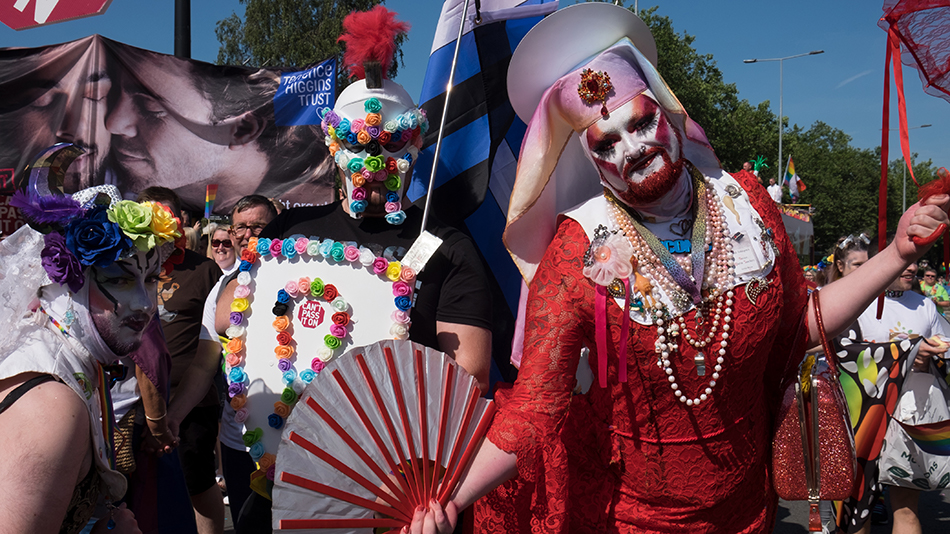
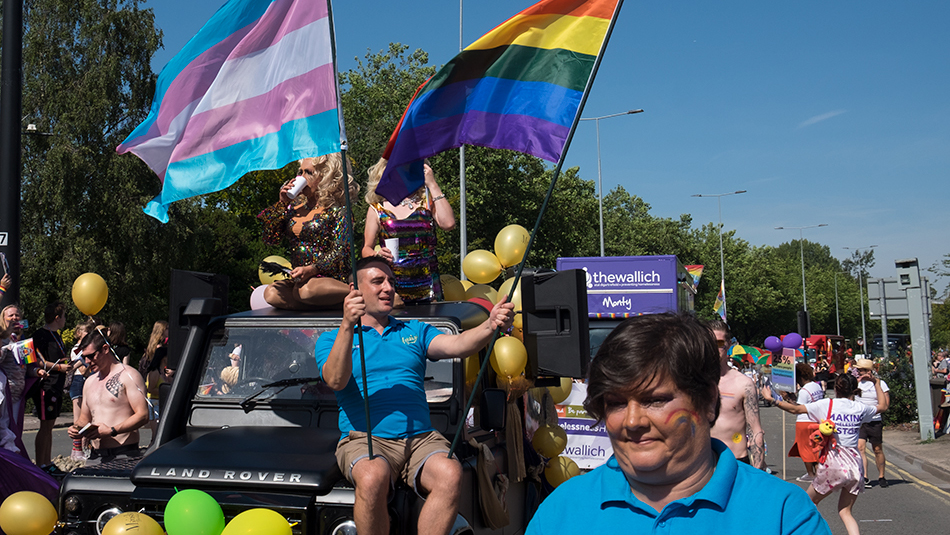
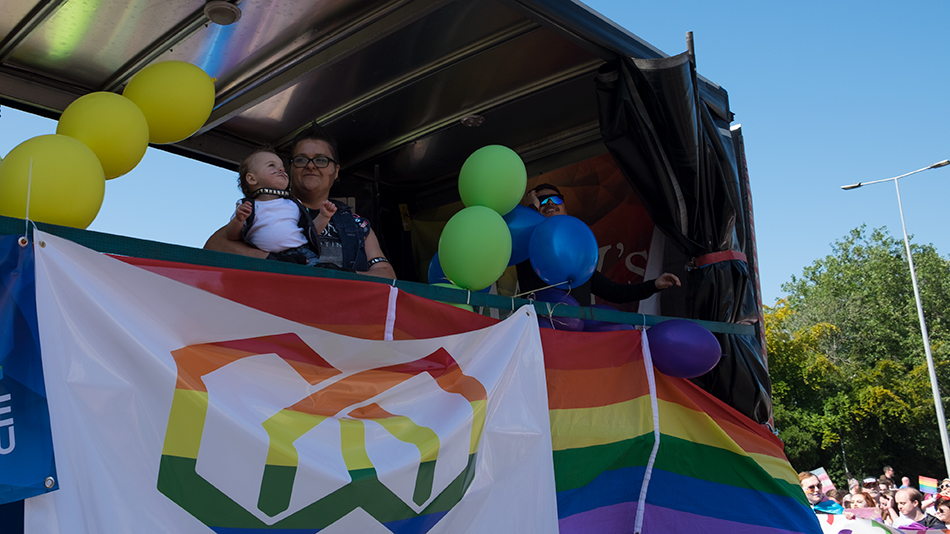
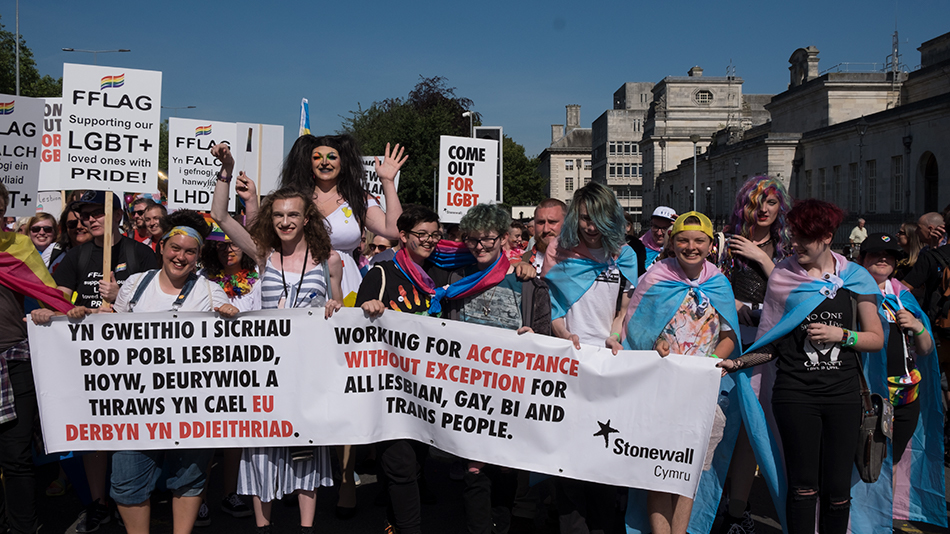
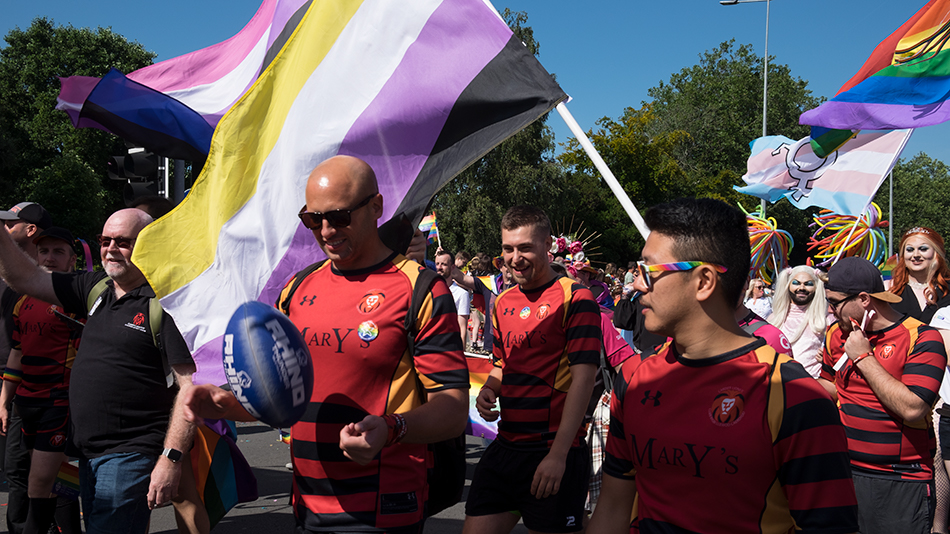
Participants at the Cardiff Pride Parade 2019. 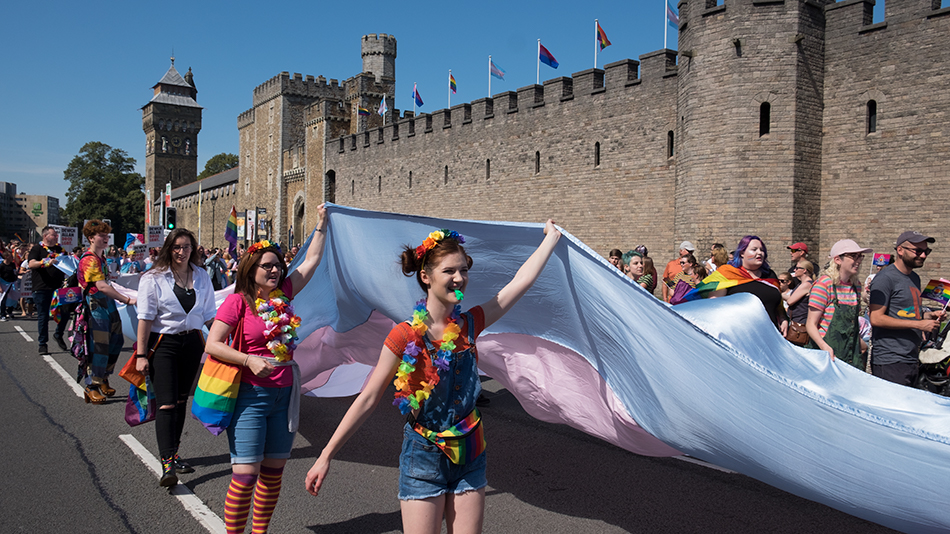
Photos: Francisco Rodriguez I.
